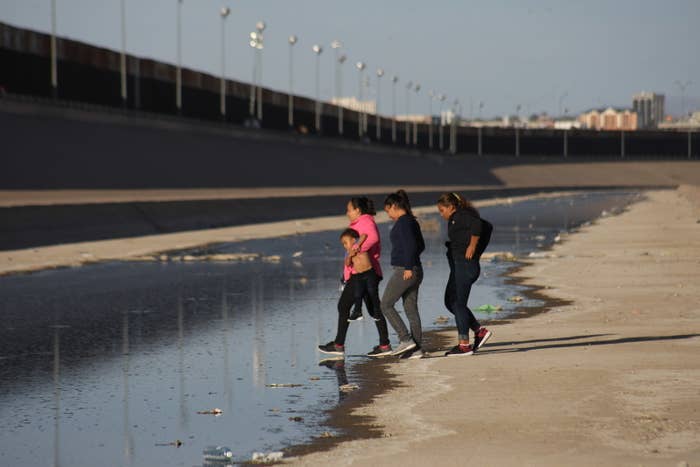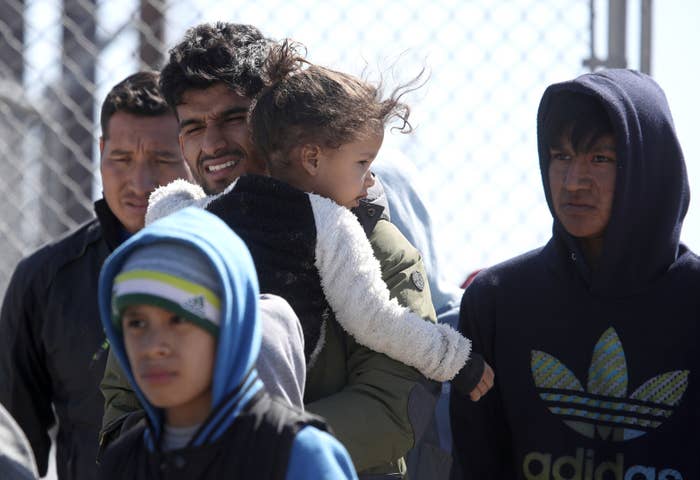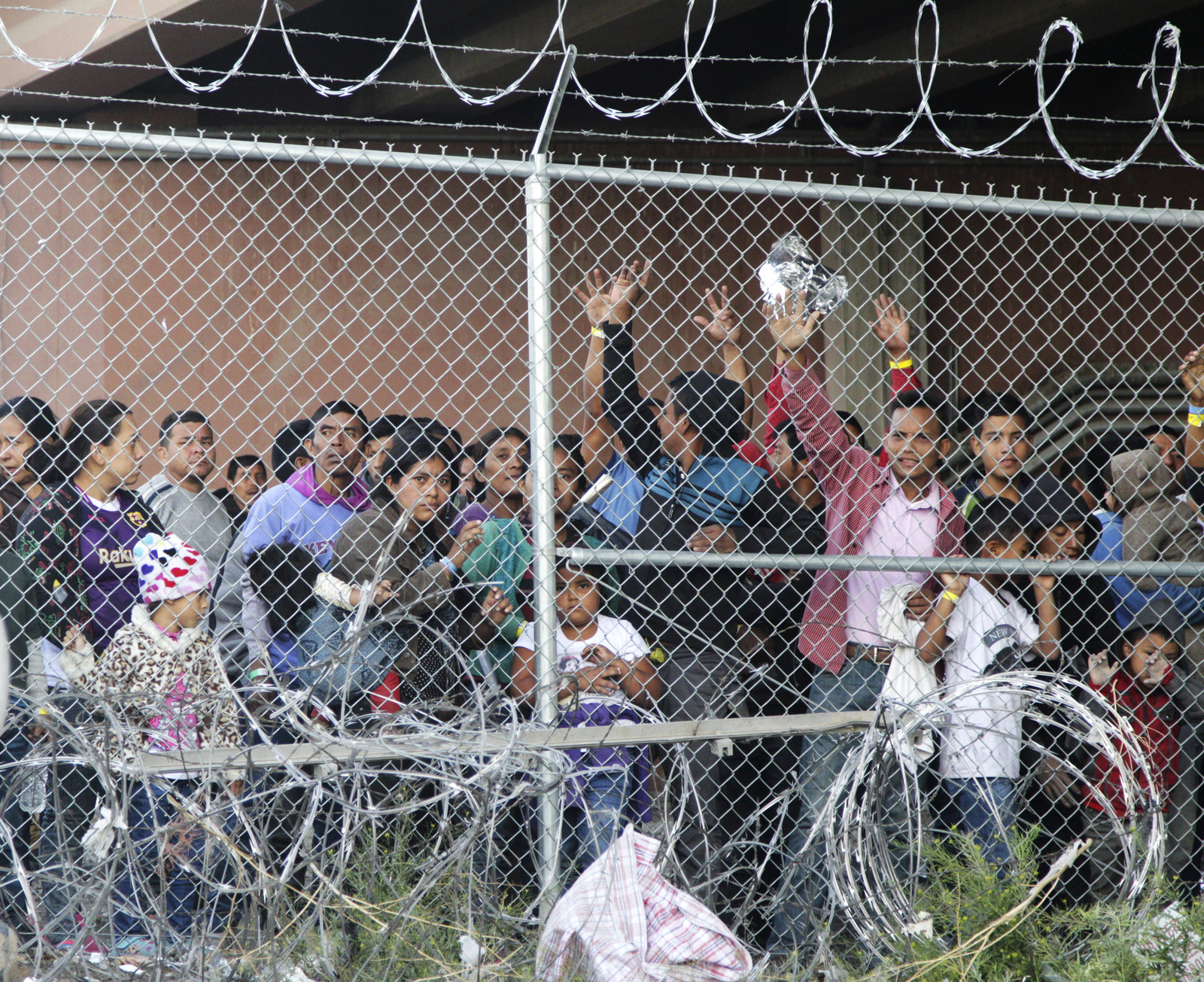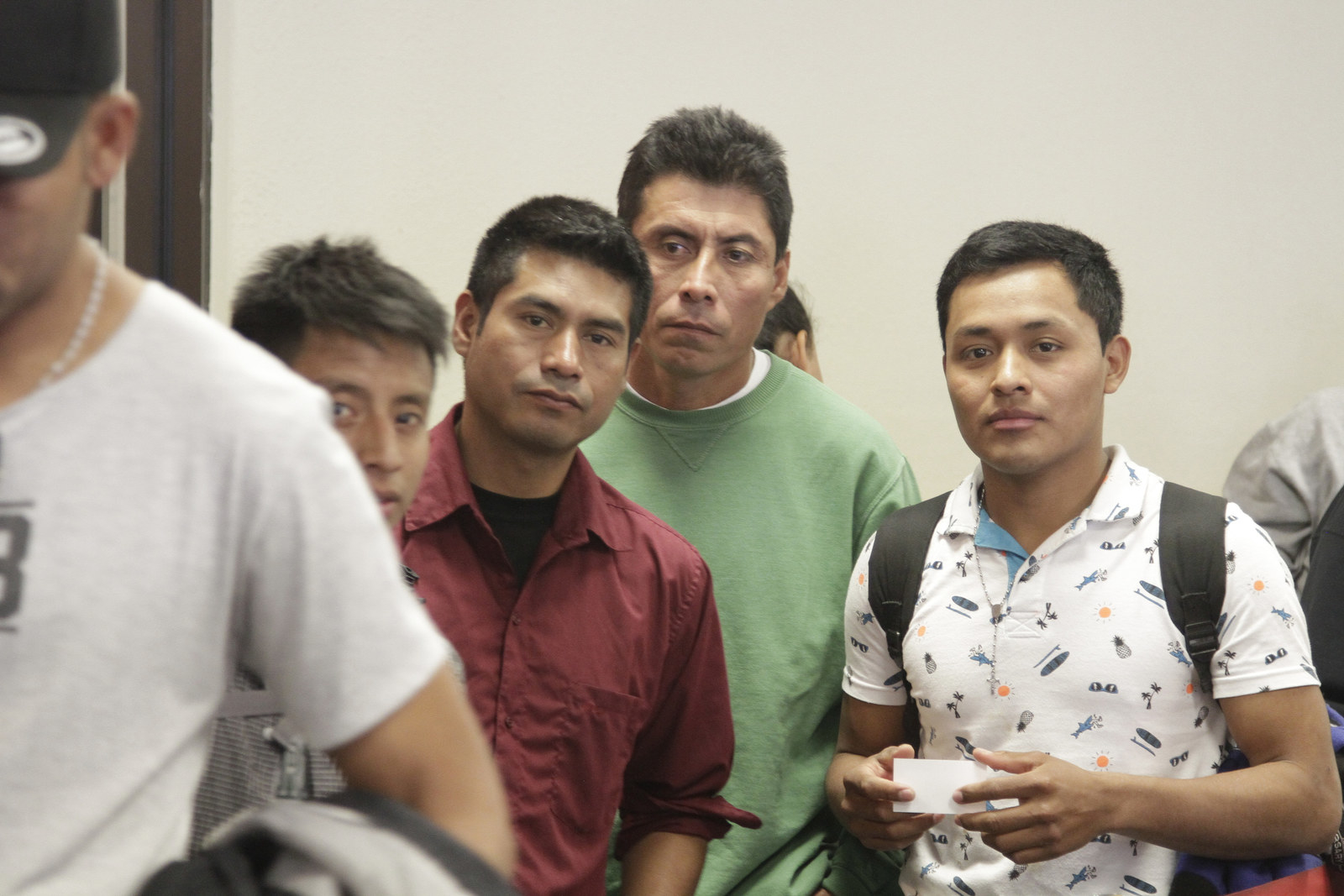
EL PASO, Texas — It was supposed to be a quick stop at the downtown bus station until Theresa Hernandez saw a group of people being dropped off by immigration agents and felt compelled to help.
The 37-year-old El Paso resident and a friend approached the group of seven people, including a pregnant woman wearing an ankle monitor, to offer the use of a cellphone to call friends or family members. Their buses weren't scheduled to depart until the next morning, and the migrants would have to spend the night without shelter in the border city. Two of the women could stay with her until then, Hernandez told them.
"This is not something I would normally do," she told BuzzFeed News. "I was moved by them; their situation made me really sad."
United States immigration authorities say they have been forced to release thousands of migrants in the area as they grapple with a record number of Central American families arriving at the border. In February, more than 76,000 migrants crossed the US–Mexico border without authorization, more than 36,000 of whom were families.
In March, agents were projected to apprehend more than 50,000 families across the border — the highest number on record since the US began tracking the statistic in 2012. Unlike single undocumented immigrants arriving from Mexico, who could be returned faster, many of these families are requesting asylum and must wait months or even years for their cases to be adjudicated in the US.
In El Paso, Border Patrol is increasingly directly releasing families that in the past they would've sent to Immigration and Customs Enforcement who was able to bus them to other areas and lessen the burden on border cities. Border Patrol's direct releases now puts more of the weight of the high family apprehension numbers on local shelters and organizations in the city.

Annunciation House, a Catholic nonprofit organization working to provide lodging for the increasing number of migrant families, has spent more than $1 million on hotel rooms for migrants in recent months, and recently acquired a temporary warehouse to shelter even more. It’s estimated the warehouse will be able to hold around 500 people when it opens.
Groups of migrants previously detained by immigration authorities say they were dropped off at the bus station, sometimes with no idea how to reach friends or family located across the US. In some cases, migrants are reliant on the strangers to make a call on a cellphone or catch a ride to the airport.
In the past, Annunciation House might have had space to shelter them all, but it too has reached capacity and has been unable to take in everyone released. Priority was being given to families with children, and in some cases they’ve had to turn away single adults, leaving some migrants to fend for themselves and depend on the kindness of residents like Hernandez.
After picking up the 19- and 20-year-old women from the bus stop, Hernandez took both asylum-seekers to Walmart to purchase them new clothes and personal items before taking them to her home to bathe. The pair told BuzzFeed News they didn't want to be interviewed but said it had been a few days since they last showered.
One of the women who fled her home country said she decided to come to the US after her father, brother, and an uncle were killed by gangs.
"My daughters were surprised, but I like to give my daughters a good example," Hernandez said. The women “were really happy, very grateful. They said it felt like a miracle."

At El Paso International Airport, groups of recently released migrants, some wearing ankle monitors, huddled in groups carrying their few belongings in plastic bags and backpacks. Those with cellphones called family to ask them to send money for bus or airline tickets. They asked Spanish speakers for help.
“How do you book a flight?”
“When's the next bus to Miami?”
“Is there a shelter open?”
The scene was just one of many as El Paso contends with an unprecedented surge of migrants in the city this year.
In fiscal year 2017, about 12,000 people were released from immigration custody in El Paso, said Laura Cruz-Acosta, a city spokesperson. The following year the number grew to 18,000. So far in fiscal year 2019, El Paso has seen the release of 50,000 people from ICE or Border Patrol custody.
To address the influx of migrants, the city recently approved a resolution to fund a full-time coordinator at United Way, and will provide public safety and transportation support for migrants attempting to get to bus stations, the airport, or shelters.
"This is a federal-level concern that the local communities are having to contend with," Cruz-Acosta told BuzzFeed News. "We need the federal government to evaluate the impact their immigration policies are having on cities, which are also impacting states and the nation.”
Migrant families apprehended by border agents are typically processed and sent to Immigration and Customs Enforcement, which transports the families farther inland to places like Albuquerque or Las Cruces, New Mexico, to lessen the burden on border cities like El Paso. While ICE is continuing to transport people to those locations, Border Patrol is also now directly releasing immigrants in El Paso with orders to later appear before an immigration judge, straining resources at organizations who house, feed, and help them reach their destinations.

Ruben Garcia, director of Annunciation House, said the number of people being released to its network last week — 4,500 — surpassed all previous surges it has seen in the past.
"I'm asking myself, has some decision been made to slowly withdraw ICE from the process of releasing," Garcia said. "I very much hope that the decision by Border Patrol to release people does not have a political component. ... I am concerned about that."
Theresa Hernandez said the two women she sheltered at her home departed last week, but they still speak by phone every day. And while she can’t shelter everyone, Hernandez said she plans to deliver food to the downtown El Paso bus station as more migrants are dropped off.
"The same thing is happening every day. They're just leaving them there," she said. "Not many people will invite strangers into their homes. I might not be able to, but I'll try to help with what I can."

